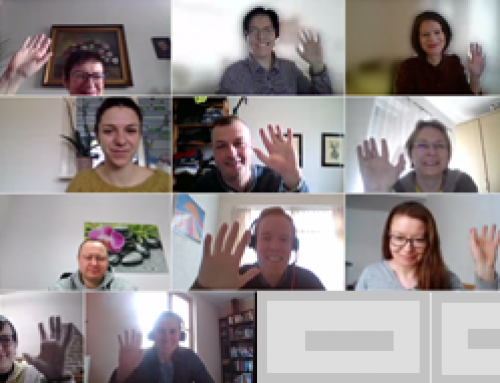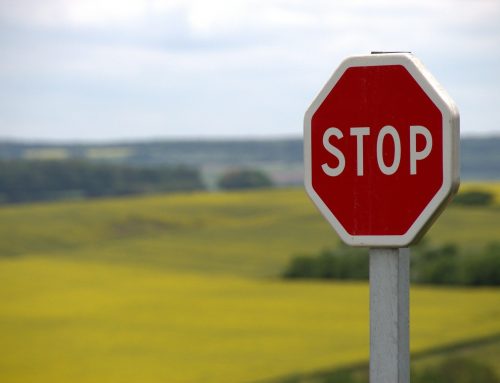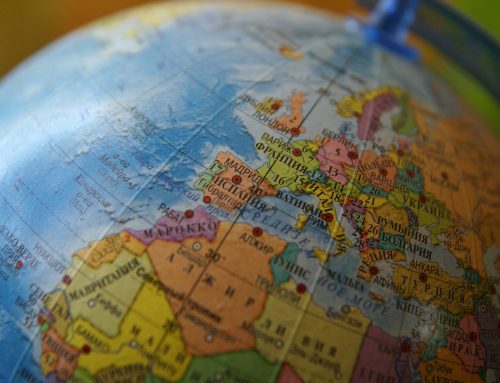Report of Bioeconomy Innovation Week
March 3 – 5, 2021
Opening
The three-day conference Bioeconomy Innovation Week, organised withing the POWER4BIO project, took place March 3 to 5. More than 200 stakeholders from several fields participated in the event that focused on the potential of the bioeconomies in Central and Eastern Europe (CEE) in the light of the new Common Agricultural Policy (CAP), the European Green Deal and the COVID-19 pandemic. Pál Goda, Managing Director of AKI Nonprofit Kft., the institute that organised the Bioeconomy Week, opened the conference with a presentation about the role of AKI within circular bioeconomy. His speech was followed by the opening remarks of Tomasz Calikowski, Research Directorate-General from the European Commission, who gave valuable insights to EU Bioeconomy Strategy Actions. Ignacio Martín, project coordinator of POWER4BIO, concluded this opening session with a brief introduction of the aims and outcomes of POWER4BIO. Here you can download the agenda of the Bioeconomy Innovation Week.
Session I: The potential of the bioeconomies in the CEE countries in light of the new CAP, the European Green Deal, and the COVID-19 pandemic
The first session on Wednesday focused on the bioeconomy potential in the Central and Eastern European countries in light of the EU’s new Common Agricultural Policy (CAP), the European Green Deal, and the Covid-19 pandemic. The speakers, high-level representatives from Agricultural Ministries in the region, the European Commission, and the BioEast Initiative highlighted the opportunities and challenges in developing the national bioeconomy strategies and reviewed the current state of the bioeconomy in Croatia, Romania, and Hungary. In the panel discussion following the presentations, the speakers agreed that properly addressing and meeting the ambitious environmental objectives of the new CAP could open up new markets for the bioeconomy, and that biomass production has shown remarkable resilience during the Covid-19 pandemic.
Presentation of Barna Kovács: BIOEAST working for sustainability transition
Presentation of Anikó Juhász: Bioeconomy in Hungary
Presentation of Tugomir Majdak: Building a sustainable and circular bioeconomy in Croatia
Presentation of Pénélope Vlandas: The new CAP proposal: opportunities for the bioeconomy
Session II: The development level of bioeconomies in Central and Eastern European countries
The second part of the conference focused on measuring the performance of bioeconomies in Central and Eastern European countries. The presenters emphasized that the challenges facing the Central and Eastern European countries are complex. Their bioeconomy needs to be developed while also helping to meet sustainability criteria. To achieve this, different levels of data and information need to be collected to facilitate the development of inter-sectoral decisions. As a result, production and service capacities can be developed in these countries, based on the region’s resources, mainly agriculture and forestry, thus ensuring their competitiveness in the European market.
Presentation of Dušan Drabik: How could the CEE countries better assess their bioeconomies
Session III: Discovering the role of projects in exploiting the potential of the bioeconomies in the CEE countries
In the session three of the conference, five different CEE-country-focused projects were introduced by the presenters. They emphasized that although the region shows a culturally cohesive picture, regional economic and political differences pose a number of obstacles to the development of their biomass-based economy.
To overcome this, these projects aimed primarily at promoting the bioeconomy of Central and Eastern European countries through the development of a bioeconomy strategy and action plan, as well as encouragement of cooperation between regional market players and raising awareness of circular and sustainable bioeconomies.
Presentation of Pawel Chmielinski: The role of the ERDN
Session IV: Discovering the role of HUBs, platforms, and clusters in boosting the regional bioeconomies in the CEE countries
Session IV of the Bioeconomy Innovation Week took place on the 4th of March. The 80-minute session was aimed at discovering the role of HUBs, platforms, and clusters in boosting the regional bioeconomies in the CEE countries. Four presentation lasting for 15 minutes were delivered. The first presentation was held under the title „The Establishment of the National BIOEAST HUB CZ – The Encouragement for the BIOEAST Region” by Marie Kubánková (Coordinator, BIO-HUB CZ), the second one „Bioeconomy Platform as a tool for supporting the development of the bioeconomy in Poland” was presented by Magdalena Borzęcka (Coordinator, IUNG), the third one delivered by Katarína Blicklingová, (Director, Bioeconomy Cluster of Slovakia) focused on the Slovak Bioeconomy Cluster – Innovation, Cooperation, Opportunities. Last, but not least „The role of the Latvian Food Bioeconomy Cluster” was explored by Irīna Kulitāne – Latvian Food Bioeconomy Cluster/ KONSO Ltd. The session was closed with a lively 20 minutes long roundtable discussion moderated by Viktória Vásáry (Scientific Advisor, AKI Nonprofit Kft.).
Presentation of Irīna Kulitāne: The role of the Latvian Food Bioeconomy Cluster
Session V: The role of TWGs in boosting the regional bioeconomies in the CEE countries
Session V of the Bioeconomy Innovation Week took place on the 4th of March. The 110-minute session was aimed at exploring the role of Thematic Working Groups in boosting the regional bioeconomies in the CEE countries. Six presentation lasting for 15 minutes were delivered. At first the role of SCAR was presented by José Matos (Portuguese delegate at SCAR). Then five presentations discussed the role of the different Thematic Working Groups within the BIOEAST Initiative. The role of Bioenergy TWG was introduced by Biljana Kulišić (Leader, Bioenergy TWG). The role of Agroecology and Sustainable Yields TWG was explained by Korinna Varga (Co-Leader, Sustainable Yields and Agroecological Intensification). Paweł Chmieliński (Leader, Food Systems TWG) talked about the role of Food Systems TWG. Rastislav Raši (Leader, Forestry TWG) covered the topic on the role of Forestry TWG. The role of Fresh Water Based Bioeconomy was specified by Marie Kubánková (ART). The session was closed with an interesting 20 minutes long roundtable discussion moderated by Viktória Vásáry (Scientific Advisor, AKI Nonprofit Kft.).
Presentation of José Matos: The role of SCAR
Presentation of Biljana Kulišić: The role of Bioenergy TWG in the BIOEAST Initiative
Presentation of Paweł Chmieliński: The role of Food Systems TWG in the BIOEAST Initative
Presentation of Rastislav Raši: The role of Forestry TWG in the BIOEAST Initative
Presentation of Marie Kubánková: The role of Fresh Water Based Bioeconomy in the BIOEAST Initative
Session VI: Results of the POWER4BIO Project
The last day of the Bioeconomy Innovation Week was dedicated to the results of the POWER4BIO project. Ignacio Martín, coordinator of POWER4BIO, started with a general introduction of the POWER4BIO results and activities, as the POWER4BIO cross-visits and training webinars. He also presented the Bioeconomy Strategy Accelerator Toolkit (BSAT) that is the main output of the POWER4BIO project. The BSAT online platform shall guide decision-makers to review or develop regional bioeconomy strategies. The toolkit is aimed to all kind of regions, regardless its maturity in the field of bioeconomy.
Martien van den Oever, work package leader in POWER4BIO, presented another main instrument developed in POWER4BIO, the Catalogue of bioeconomy solutions. In this online searchable database short descriptions of existing bio-based solutions and technologies are listed for a wide stream of feedstock and a wide array of bio-based products. The listed solutions have a tested potential of market uptake and are located in the fields of bioenergy, biomaterials, biochemicals, food & feed. Background information about the catalogue can be found in the POWER4BIO deliverable D3.3 Catalogue with bio-based solutions.
Nóra Hatvani, work package leader in POWER4BIO, introduced the business models behind bio-based good practices. The aim of POWER4BIO was to support regional bioeconomy development by providing regional stakeholders with tools, instruments and guidance to develop and implement their bioeconomy strategies and to collect bio-based business models deployed at smaller scale in rural areas. Background information on business models and good practices can be found in the POWER4BIO deliverables D4.2 An overview of suitable regional policies to support bio-based business models and D3.4 Best practice examples.
Laura García, work package leader in POWER4BIO, reported about the results and lessons learned when developing regional bioeconomy strategies in CEE regions. She presented the guidelines and tools provided in the collaborative process with the POWER4BIO regions as well as the summaries of new bioeconomy strategies in CEE countries. The background information collected in POWER4BIO can be found in the deliverable D5.3 Summaries of 5 new regional bioeconomy strategies.
Francesca Natali, work package leader in POWER4BIO, gave insights into the role of financial instruments to empower bioeconomy strategies. She introduced the main investment tools of the EU and gave advice on what managing authorities need to know before starting. Different ESIF instruments for different regions were also presented as well as several case studies. Francesca Natali ended her presentation with very useful main conclusions and take-home messages.
Presentation of Ignacio Martin Jimenez: Introduction of BSAT
Presentation of Martien van den Oever: Catalogue of bio-based solutions
Presentation of Nóra Hatvani: Business models behind bio-based good practices
Presentation of Francesca Natali: The role of financial instruments to empower bioeconomy strategies




